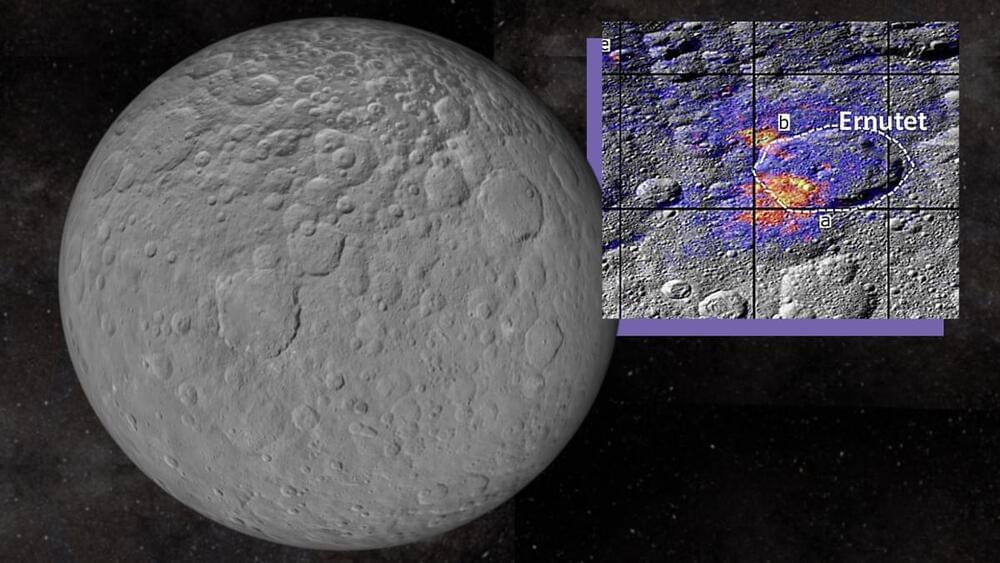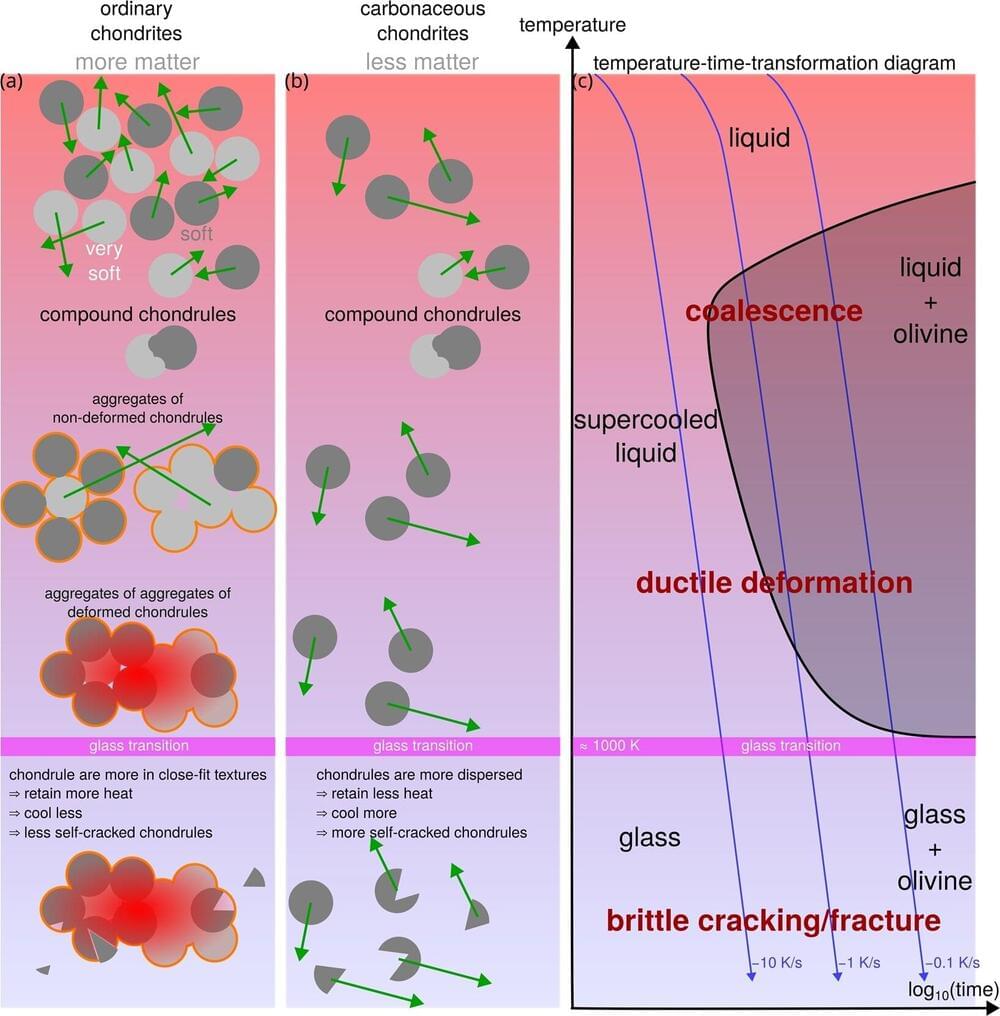Imagine humanity achieving type 7 civilization – a level beyond our wildest dreams. What does it mean to be in control of not just our galaxy, but the entire universe? Would we become gods – or bring about our own demise?
Category: space – Page 172
Mindscape 298 | Jeff Lichtman on the Wiring Diagram of the Brain
Patreon: https://www.patreon.com/seanmcarroll.
Blog post with audio player, show notes, and transcript: https://www.preposterousuniverse.com/podcast/2024/12/09/298-…the-brain/
The number of neurons in the human brain is comparable to the number of stars in the Milky Way galaxy. Unlike the stars, however, in the case of neurons the real action is in how they are directly connected to each other: receiving signals over synapses via their dendrites, and when appropriately triggered, sending signals down the axon to other neurons (glossing over some complications). So a major step in understanding the brain is to map its wiring diagram, or connectome: the complete map of those connections. For a human brain that’s an intimidatingly complex challenge, but important advances have been made on tinier brains. We talk with Jeff Lichtman, a leader in brain mapping, to gauge the current state of progress and what it implies.
Jeff Lichtman received an MD/PhD from Washington University in St. Louis. He is currently the Jeremy R. Knowles Professor of Molecular and Cellular Biology and Santiago Ramón y Cajal Professor of Arts and Sciences at Harvard University. He is co-inventor of the Brainbow system for imaging neurons. He is a member of the National Academy of Sciences.
Mindscape Podcast playlist: https://www.youtube.com/playlist?list=PLrxfgDEc2NxY_fRExpDXr87tzRbPCaA5x.
Sean Carroll channel: https://www.youtube.com/c/seancarroll.
#podcast #ideas #science #philosophy #culture

Dwarf planet Ceres could be rich in organics, defunct spacecraft data reveals
These findings dispute the former theory, suggesting the organic materials come from within the dwarf planet or are “endogenous.”
“The significance of this discovery lies in the fact that, if these are endogenous materials, it would confirm the existence of internal energy sources that could support biological processes,” team leader and Instituto de Astrofísica de Andalucía researcher Juan Luis Rizos said in a statement.
To investigate the organic compounds found on Ceres, the team used a new approach that examined the dwarf planet’s surface and the distribution of organic matter at the highest possible resolution.

Virgin Galactic eyes possible expansion into Italy
US space company Virgin Galactic announced Thursday it is exploring the possibility of opening a new base in Italy, potentially bringing suborbital flights to tourists in Europe for the first time.
Founded by British billionaire Richard Branson, the company is currently in a two-year hiatus to upgrade its fleet, following seven commercial flights to the edge of space from its US base at Spaceport America in New Mexico.
Virgin Galactic said it had signed an agreement with Italy’s ENAC civil aviation authority to study the feasibility of operating missions from Grottaglie Spaceport, located in the Puglia region of southern Italy.
Mysterious, repeating radio bursts from space may finally have an explanation
By searching sparsely populated regions of the galaxy, astronomers have for the first time found the source of a kind of signal that has puzzled them for years.
Astronomers Detect the Smallest Main Belt Asteroids Ever Found by Repurposing a Technique for Exoplanet Discovery
An unusual approach to spotting tiny asteroids uses James Webb Space Telescope data in a boost for planetary defense research.

NASA’s Solar Eclipse Mission: Exploring the Sun’s Impact on Earth
What can solar eclipses teach us about the Sun and how it interacts with the Earth’s atmosphere? This is what a recent press briefing conducted at the American Geophysical Union 2024 Fall Meeting hopes to address as a team of scientists from the Citizen CATE 2024 (Continental-America Telescopic Eclipse) project reported on findings that were obtained during the April 8, 2024, total solar eclipse over North America.
“Scientists and tens of thousands of volunteer observers were stationed throughout the Moon’s shadow,” said Dr. Kelly Korreck, who is the NASA Program Manager for the 2023 and 2024 Solar Eclipses. “Their efforts were a crucial part of the Heliophysics Big Year – helping us to learn more about the Sun and how it affects Earth’s atmosphere when our star’s light temporarily disappears from view.”
Consisting of a combination of both professional and citizen scientists using a combination of images, spectroscopy, and ham radios, the large team comprised of Citizen CATE 2024 made groundbreaking observations of the 2024 solar eclipse, along with ascertaining how radio signals were influenced during the eclipse. In the end, the team of more than 800 individuals discovered that eclipses produce atmospheric gravity waves, or ripples within the Earth’s atmosphere. Additionally, the ham radio operators, comprised of more than 6,350 individuals, discovered that radio communications improved both within and outside the eclipses’ path of totality at frequencies between 1 to 7 Megahertz, whereas communications became worse at frequencies above 10 Megahertz.


Primitive meteorites formed in less turbulent solar nebula, researchers suggest
Chondritic meteorites (chondrites) are some of the oldest rocks in our solar system, forming 4.5 billion years ago. Therefore, their primitive composition means that they offer a window into the origins of planet formation, particularly as their major elements (heavier than hydrogen and helium, including oxygen, silicon, magnesium, iron and nickel) closely reflect the sun’s photosphere composition.
Melting and clumped accumulation (accretion) of dust particles at high temperatures (up to 2,000 Kelvin [~1,727 °C]) in the protoplanetary disk formed crystallized silicate spheres known as chondrules, which further joined together to produce asteroids, the remnants of planetary genesis.
There are two main types, believed to have formed in the inner and outer solar system respectively: ordinary chondrites are composed of up to 90% chondrules, while carbonaceous chondrites have only 20–50% chondrules within a background matrix.

Firefly Sparkle: ‘Christmas’ galaxy reveals how Universe formed
NASA’s James Webb Space Telescope (JWST) has for the first time captured an image of what our galaxy likely looked like just as it was forming — and it’s got space scientists feeling very Christmassy.
“I just love the sparkle galaxy with its Christmas lights shining as it was when the Universe was just 600 million years old,” Prof Catherine Heymans, Scotland’s Astronomer Royal, told BBC News.
The image shows ten balls of stars of different colours, appearing like Christmas tree baubles hanging in the cosmos.